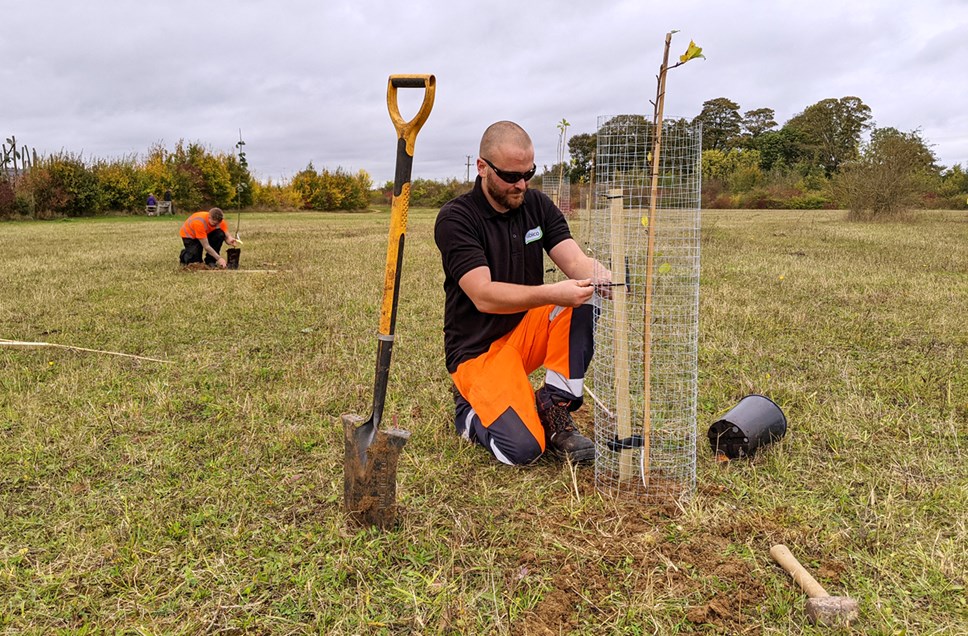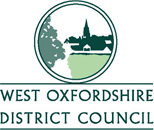
Nature’s recovery at heart of Council’s new land management plans
West Oxfordshire District Council has set out its plans for managing its land areas as it looks to ‘build back greener’ following the Covid pandemic and deliver on its climate change strategy commitment to protect and restore the district’s natural eco-systems and wildlife habitats.
The newly published land management plans focus on twelve key sites that have been selected for their existing and potential wildlife value - including large recreation areas at Langel Common, Kilkenny Lane Country Park, Deer Park Wood and North Leigh Common - and puts nature’s recovery firmly at the centre of all future land management decisions and practices.
The District Council is now encouraging the public and other key stakeholders to look at the proposals and say what they think.
Councillor David Harvey, Cabinet Member for Climate Change at West Oxfordshire District Council said: “The Council owns and is responsible for the management of a wide range of public open green spaces across the district. These sites are well-maintained by our contractor, Ubico, with an agreed schedule of works in place, but the new enhanced plans are about re-evaluating and adjusting what we do, so that wider environmental considerations are prioritised and put at the heart of how these spaces are managed going forward.
“Over recent months, we have worked closely with our grounds maintenance teams and habitat specialists to define what changes we need to implement. We’ve looked across the board, from our larger common areas but also to our small areas, such as roadside verges, which can also play an important role in creating wildlife corridors and supporting bio-diversity, to ensure we are maximising the benefit to the environment.”
Reviewing the management of the different habitats and natural features across each of the sites, has enabled the Council to identify opportunities where improvements can be made through modifying its maintenance schedule. Establishing more wildflower and grass meadows by leaving some areas untouched is just one of the measures to be adopted as well as creating other new wildlife habitats.
The Council is also looking at how the natural landscape of each area can be used more effectively to help mitigate some of the impacts of a changing climate, such as surface flooding, by restoring floodplain meadows and balancing ponds.
Each land management plan sets a framework for the next five years. While some changes will be evident almost immediately, others changes will take longer to reach fruition due to the time needed to allow restored green areas to flourish as wildlife havens. In the longer-term, the Council would like to take even greater strides to improve biodiversity by adding to its programme of works and will actively seek funding to make these extra projects a reality.
Alongside the day-to-day management of the sites, the Council will continue to support local volunteer groups - the Witney Woodland Volunteers and the Friends of North Leigh Common - in the valuable conservation work they do.
Councillor Harvey continued: “The crucial role our outside spaces play has never been more evident than over the last 18 months. The changes we are making will not only benefit the natural environment but will enhance these spaces for our communities as well, so they can continue to be experienced and enjoyed but we are keen to hear what others have to say on the proposals.”
Residents, local community groups, parish and town councils and key stakeholders are invited to give their views on the new land management plans. Comments should be made by Friday 10 December 2021 and emailed to: [email protected].
The complete set of land management plans is available to download from the District Council’s website: www.westoxon.gov.uk/environment/climate-action/enhancing-our-natural-capital/
Contact Information
West Oxfordshire District Council Communications Team
Notes to editors
Land management plans have been developed for the following 12 council owned areas:
- Deer Park Wood, Witney
- Deer Park South, Witney
- Deer Park estate, Witney
- Bathing Place estate, Witney
- Millers Mews, Witney
- Langel Common, Witney
- Bishops Farm Mill, Witney
- Madley Park estate, Witney
- Shilton Park estate, Carterton
- Kilkenny Lane Country Park, Carterton
- North Leigh Common
- Rowell Way estate, Chipping Norton
